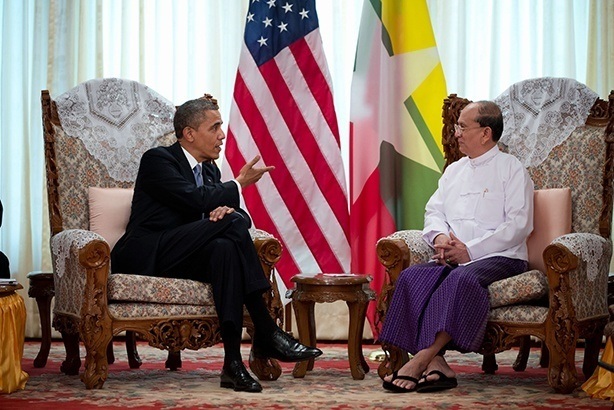Burma to hold general election in November 2015

On Wednesday 8th July, it was announced that Burma is to hold a general election on the 8th of November this year. The election will be the first in 25 years to be contested by Aung San Suu Kyi’s National League for Democracy (NLD), which won the 1990 elections by a landslide but were prevented from taking power by the military junta.
For a country that has been run by a repressive military regime for the past 50 years, this week’s news could mean a big and important step towards full democracy – although, given Burma's track history, not everyone is blithely optimistic about the outcome.
What happened last time Burma held elections?
The last general elections, held in 2010, saw the military’s Union Solidarity and Development Party win by 259 seats out of a total of 330 – a result that nobody in their right mind could believe. The NLD boycotted proceedings, and the “victory” was condemned as fraudulent by the UN and Western nations.
Before 2010, the last election to be held in Burma took place in 1990 - after a full 30 years of military dictatorship. 93 parties stood, with the NLD taking a whopping 392 out of 492 seats. The next most popular party won 23 seats, and the military’s National Unity Party (NUP) took just 10. Despite this decisive victory for the NLD, the military junta refused to honour the result and continued to rule the country under the euphemistic title “State Peace and Development Council”.

Burma's current president, Thein Sein, meets with President Obama in 2012.
How will this time be different?
As discussed in a recent blog post, Burma has made a number of significant steps toward reform in the years since 2010. President Thein Sein’s administration has eased a number of repressive laws and released a sizeable proportion of political prisoners, and in 2012 the NLD won 43 out of 44 contested seats in a national by-election. Despite these positive developments, many believe that progress has now come to a halt or even begun to fall backwards in some areas.
If this year’s elections are conducted fairly (as some still have hope that they will be), the new Burmese parliament will be made up of 75% freely elected members, with 25% reserved for the military. It will not be a full democracy – far from it – but it will be a very big step in the right direction.
Does this mean that Aung San Suu Kyi will finally become president?
The short answer is: no. Unfortunately, thanks to a provision in the Burmese constitution that forbids those with a foreign spouse or children from assuming office, Aung San Suu Kyi is not allowed to become Burma’s next president.
“The Lady”, as she is known, married her late British husband in 1972 and has two British sons, which disqualifies her from office. The clause, which is thought to have been written specifically to impede Aung San Suu Kyi herself, was challenged recently – but the proposal was blocked by the military despite widespread objections from all quarters, including President Obama.
The constitution also ensures that even in the event of an NLD victory, the military retains the power of veto over any constitutional change, and that the military's commander-in-chief will continue to have the final say in all ministry appointments.
On the other hand, however, the fact that the constitution is even up for discussion represents leaps and bounds for a country in which, until 2013, it was a crime to criticise the status quo.
The NLD has announced its refusal to nominate an alternative candidate in the event that the party wins the election, and many still hope that Aung San Suu Kyi will be allowed to assume power despite the recent setbacks. Some sources, such as the BBC, even argue that the failed attempt at constitutional reform may have been a clever PR move designed to ramp up public pressure on the military in the run-up to the election.
In either case, we at InsideBurma Tours will be eagerly awaiting the results!




